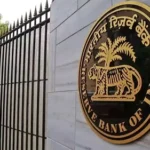In a significant boost to Andhra Pradesh’s capital development, the World Bank has approved a ₹6,700 crore loan for the construction of Amaravati. This approval follows the Asian Development Bank’s (ADB) sanction of a ₹6,800 crore loan for the same project, bringing the total external funding to ₹13,500 crore.
Background
The development of Amaravati as the capital city of Andhra Pradesh has been a focal point since the state’s bifurcation in 2014. The project aims to establish a modern, sustainable city with world-class infrastructure. Initially, in 2016, the Indian government sought financial assistance from international institutions, including the World Bank, through the Amaravati Sustainable Infrastructure and Institutional Development Project (ASIIDP). However, in 2019, the central government withdrew its request for financing, leading to a temporary halt in international support.
Revival of International Support
The recent change in the state government’s administration has led to a renewed focus on Amaravati’s development. Consequently, the proposal for international funding was revived in 2024. The World Bank’s governing board granted its final approval for the ₹6,700 crore loan on December 19, 2024, following the ADB’s approval of ₹6,800 crore earlier in the month.

Phased Development Plan
The development of Amaravati is structured into two phases:
- Phase 1: This phase focuses on constructing public buildings, basic trunk infrastructure, and neighborhood infrastructure in Zones 1–7 and Zone 10. It includes essential services such as roads, water supply, sewage systems, and public amenities.
- Phase 2: This phase will cover the remaining trunk infrastructure and neighborhood services for other zones, completing the city’s comprehensive development.
The Environmental and Social Systems Assessment (ESSA) has been conducted primarily for Phase 1 activities, parts of which will be supported by the Amaravati Capital City Development Program (ACCDP), financed by both the World Bank and the ADB.
Environmental and Social Considerations
As part of the project preparation, the Andhra Pradesh Capital Region Development Authority (APCRDA) has developed key safeguards documents, including:
- Environmental and Social Management Framework (ESMF)
- Resettlement Policy Framework (RPF)
- Environmental Impact Assessments (EIAs)
- Environmental Management Plans (EMPs)
- Resettlement Action Plans (RAPs)
These documents pertain to proposed interventions such as priority roads, building infrastructure, and flood mitigation works, ensuring that the development adheres to environmental and social standards.
Significance of the Funding
The combined funding of ₹13,500 crore from the World Bank and ADB is expected to:
- Accelerate Infrastructure Development: Facilitate the construction of essential infrastructure, including transportation networks, utilities, and public facilities.
- Promote Sustainable Urbanization: Implement sustainable practices in urban planning, environmental management, and resource utilization.
- Enhance Economic Growth: Attract investments, generate employment opportunities, and boost the regional economy.
- Improve Quality of Life: Provide residents with improved living standards through access to modern amenities and services.
Challenges and Considerations
While the approval of international funding marks a positive development, several challenges remain:
- Timely Implementation: Ensuring that the project adheres to timelines to prevent cost overruns and delays.
- Regulatory Compliance: Maintaining compliance with environmental and social safeguards to mitigate adverse impacts.
- Financial Management: Effective utilization of funds to achieve project objectives without financial mismanagement.
- Stakeholder Engagement: Involving local communities and stakeholders in the planning and execution phases to address concerns and promote inclusivity.
Conclusion
The World Bank’s approval of a ₹6,700 crore loan, alongside the ADB’s ₹6,800 crore loan, signifies a renewed commitment to developing Amaravati as a modern capital city. With a structured phased approach and comprehensive planning, the project aims to create a sustainable urban center that meets global standards. Successful implementation will depend on effective project management, adherence to safeguards, and active stakeholder participation.


















